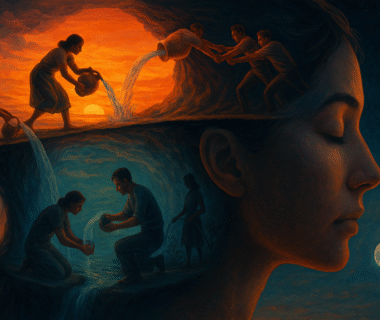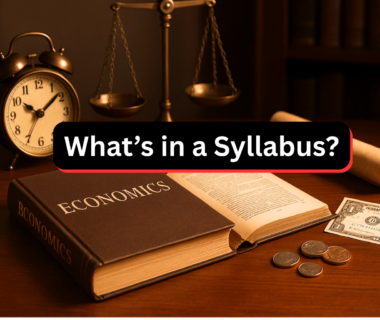Every society faces the same haunting question: we don’t have enough for everyone to have everything — so how do we choose? That’s the essence of economics. And the moment you understand that, a much more interesting question emerges: who gets to choose?
We already discussed how resources are finite and therefore that forces choices, and I think that this is something that is interesting to think about and that should give us pause – the questions of resource allocation.
The three basic questions of resource allocation are foundational to economics (doesn’t matter whether it’s IGCSE, A Levels, IB, or at the university level) and are asked by every society — whether it’s capitalist, socialist, or mixed — because resources are limited and choices must be made.
🌍 The Three Basic Economic Questions:
- What to produce?
→ Which goods and services should be produced with the available resources?
- Should we produce more food or more luxury cars?
- Should we invest in healthcare, education, or weapons?
- How to produce?
→ What methods and resources should be used to produce these goods and services?
- Labour-intensive or capital-intensive?
- Using sustainable energy or fossil fuels?
- For whom to produce?
→ Who gets to consume the goods and services?
- Based on income? Need? Equality?
- Should housing be allocated by price or by social welfare criteria?
Of course, these are extremely important questions to deal with. But at some point, it makes you wonder:
Who exactly decides?
It’s a very interesting thought to consider when you think about how resources are allocated across space and time.
- Who controls them?
- Under what circumstances?
- How does it differ across different societies?
And it’s here we find ourselves wondering—who really controls resource allocation? The billionaire CEO? The charismatic politician? The bureaucrat with a spreadsheet? Or a faceless global institution? Maybe it’s none of them. Maybe it’s all of them. Maybe it’s you and me but we don’t even realize that.
When you are a student, you may not always (at the outset) consider this question or how it maps onto the corporate world or political world, or even imagine that you may be related to that or participating in it at the moment, simply by choosing to read this blog post.
You may not exactly know how it relates to politics and politicians or institutions and the ways that things are done across societies—whether by individuals, whether by powerful people, whether by planners twiddling their fingers, or anything else along the way.
Still though, these are some very interesting questions to think about.
We might also consider that we don’t immediately know…
🔍 1. How much to produce?
Even after deciding what to produce, a society must decide how much of each good or service is optimal.
- How many hospitals? How many smartphones?
- Producing too much leads to waste, too little to shortages.
⏳ 2. When to produce?
Timing matters — some goods are time-sensitive, like seasonal crops, or future-focused, like infrastructure or AI.
- Should we invest now in semiconductor capacity, or wait?
🔁 3. How to allocate resources over time?
Intertemporal allocation matters for sustainability and long-term planning.
- Should we consume all our oil now, or save some for future generations?
♻️ 4. How to deal with externalities?
Some production/consumption creates side effects (pollution, congestion, education spillovers).
- Should resources go toward mitigating harm (like carbon taxes)?
- Should we subsidize socially beneficial goods?
🛡️ 5. How to ensure equity and justice in allocation?
Not just for whom, but how fair is the system?
- Do the poor get basic needs met?
- Should wealth redistribution play a role?
📈 6. How to respond to scarcity or surplus shocks?
In real economies, shocks like war, pandemics, or recessions shift resource availability.
- Should we reallocate funds to defense? Emergency healthcare?
🧠 7. Who decides?
- Is resource allocation driven by markets, governments, AI algorithms, or community-based systems?
- Is it driven by influencers? By writers? By academics? By mass movements? Is it driven by everybody, a cabal, or by nobody?
Here then are some of my thoughts and reflections.
I think that it is very interesting to reflect on these questions, but I think that if you are wondering about them now, a good direction to go in is the direction of politics.
Now how could all those people giving dumb speeches on social media and literally slandering their way into power and beyond have anything to do with any of those questions out there?
Well, everything. Questions about resource allocation can be theoretical and they can make you feel good, but then when you start asking a question of how it is carried out in real life, you cannot avoid the question of politics and power as it is actually manifested in the real world beyond theories and beyond ideas alone.
Politicians debate and discuss the laws that will define the legislative architecture of our society that determines what is permitted and what won’t be. Politicians have the ability to discuss ideas but they also have degrees of power in deciding how resources for an entire society will be allocated. Politicians also often share in a revolving door within a society that decides how government budgets will be used and big choices will be made that in turn decide how individuals within a society will experience life even though they are technically the people. But their decisions may be outweighed by those who end up being elected and placed into positions of power.
But then, you might question how much influence you have over the process – and you might then conclude that individually, you have little, and this ultimately applies across pretty much every single member of the society who is influenced by the choices of every other person in the world, whether in terms of large-scale pattern behaviors or otherwise. One can only control it to a limited degree.
After all, in a country like Malaysia, you have one vote, and one vote will not win an election.
If not by force of revolution, do you get to control what everybody does?
Can you decide the entire direction of the society?
Can the Prime Minister for that matter?
Can a CEO, a group of CEOs, a cabal of Prime Ministers ala ASEAN? The G7? the OIC? The World Bank, World Economic Forum, IMF, or a collection of banks working in tandem?
…Can anybody?
I think that is an interesting question to explore; certainly, we may control our own lives and how we allocate resources or time within our own individual spheres of control, as defined by a mixture of social norms, individual capacity, technology, legal constraints, time, and opportunity costs amongst other things – We each have the ability, liberty, and agency to decide upon what we personally will choose in our personal lives and we may not necessarily be able to control what other people will choose, what they will do, or how they will act to the degree of forcing them to do exactly what we want…
But we can persuade people to want better and different things, at least to a degree. We can shape and be shaped through our thoughts. The ideas of those who happen to resonate with what we have chosen to think, feel, and believe about the world. For that reason, we have the ability to summon up the will of those around us to cooperate, coordinate, and create new things.
It is likely that many of you have more power than you think you may have. Slightly less than your delusions grant you in the deepest of your fever dreams and lie somewhere in the middle of things, even as you read this blog post contemplating either the delusion of the writer or the life that you happen to be living at this moment. That is all well and good. I’ve said this a few times, but I’m not here to be a hero. I’m not here to save this society – just to highlight to you that choice is a very real thing, and that it is something that we as humans must deal with in the course of our shared existence.
But I do hope that I can make you think a little more about the choices that you are making to have agency over them and to learn how, when, and why to collaborate with others in creating something a little better for the future; after all, even if we cannot shape the things that we see happening on large scales with just our voices or our visions, we have the ability to converse, to share our thoughts, and from there, in different ways, to influence the direction of the world’s thinking through what we believe, what we see, and what we ideate.
You may not be able to dictate the budget of a country, or single-handedly reshape the economy. But you can choose. You can think. And perhaps more importantly—you can talk. The ideas you carry, and the way you share them, might just spark a ripple in someone else’s mind. And enough ripples, one day, become a tide.
Yours,
Sepupu.



